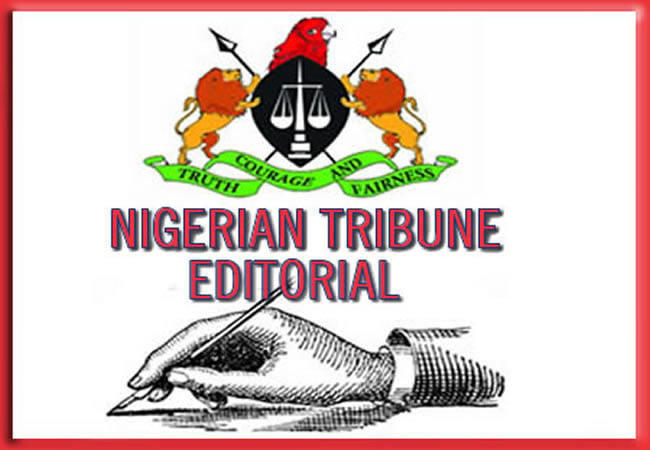POLITICAL party primaries were scheduled to be concluded on June 3, according to the schedule of election activities earlier announced by the Independent National Electoral Commission (INEC). As the deadline drew close, however, the parties requested for an extension. The chairman of INEC, Professor Mahmood Yakubu, declared that the commission would not extend the deadline because an extension would affect other activities in the schedule for the 2023 general election. However, the persistence by the parties forced INEC to grant a week’s extension of the deadline. The parties, through the Inter-party Advisory Council (IPAC), requested INEC to allow them to utilise the one-week period of inactivity between the June 3 deadline and June 10 when the parties were expected to begin uploading the names of their candidates unto the commission’s Candidate Nomination Portal. The request was granted.
The inability of the political parties to conduct primaries as originally scheduled reflected the hard time they had in conducting the primaries. With few exceptions, the primaries were riddled with malpractices and irregularities. There was violence and free-for-all in a few gubernatorial primaries across the parties. In some of these cases, candidates who lost the primaries held press conferences to condemn and reject the outcomes. In others, delegates and aspirants were prevented from accessing the venues of the primaries. In some of the cases, parallel primaries were held by factions of the parties. There were also claims that moneybags hijacked the primaries in some states. The presidential primaries were also compromised as the major political parties went for the highest bidder in the exercises characterised by dollar rain. Vote buying, intimidation and mudslinging were the order of the day. There were allegations of delegates being bribed with as much as $50,000 during the presidential primaries. Some delegates were not even literate enough to write the names of their preferred candidates, pointing to the nature of the congresses that elected the delegates in the first place.
The crisis that attended the primaries began with the election of delegates. Controversy and contestation of the delegate lists were widespread. Many party members argued that the processes were flawed. In many states, there were several lists of delegates in existence when the primaries were held. It was therefore not clear which list was authentic as each candidate claimed to have the authentic list. On the strength of the unresolved list of delegates, some candidates thought the primaries should not be held until the issue was resolved. They therefore boycotted the primaries. Where the primaries were held despite the candidates’ boycott, they simply defected to other parties to pursue their electoral ambition. In some cases where parallel primaries were held, two or more candidates emerged, with the party leadership saddled with the responsibility of identifying the legitimate primary. Within the All Progressives Congress (APC), the fallouts of some of the primaries have reverberated in defections to other political parties. Thus, the processes were flawed. It is obvious that were it not for the provisions of the amended Electoral Act, the leadership of the parties would have imposed candidates outright. Not a few Nigerians believe that the primaries have not thrown up quality candidates.
Political parties are central players in Nigeria’s democratic process. The constitution does not provide room for individuals to stand for election as independent candidates. Thus, for anyone to contest in an election for a public office, he or she must be nominated by a registered political party. Thus, political parties are an indispensable part of the democratic process. But these primaries have shown, once again, that there is a huge democratic deficit in the internal processes of the parties. The primaries were a bazaar and a jamboree; the rules were set aside in so many instances. We therefore call on the leadership and members of political parties to recognise the flaws that have trailed the primaries and find ways and means of ensuring that they are avoided or reduced significantly in the next rounds of primaries.
The behaviour of members of political parties, their regard or disregard for party rules, the capacity and willingness of the parties to conduct free and fair primaries and the inclusiveness of the decision-making process in political parties reveal a lot about the health, not only of the political parties but also of democracy in Nigeria. Political parties are a training ground for leadership in government. Thus, their inability to conduct free, fair, credible and peaceful primaries may portend great danger for the democratic process. We believe that primaries are essential to the development of internal democracy within the parties. We call on members of the political parties to observe party rules to ensure stability and the institutionalisation of the parties. We hope that the lessons from the primaries will be brought to bear on the 2023 elections in a positive manner.
We recall that several officials of INEC have identified the behaviour of politicians as a critical variable in explaining the failures of electoral administration in Nigeria. Politicians go to great lengths to undermine the electoral rules. There must be a change in the attitude of politicians towards electoral contest if democracy is to thrive in Nigeria. Electoral contests have always taken the form of warfare, thuggery and brigandage. This must stop. There is always the opportunity to contest another day. Elections must never be “a do-or-die affair”. Politicians must recognise that elections can only provide temporary victory as the occupation of office is for a fixed term that will expire. They must learn and improve on political practice to help consolidate democracy in Nigeria.
YOU SHOULD NOT MISS THESE FROM NIGERIAN TRIBUNE
Revealed! Details Of South-West APC Leaders Meeting With Presidential Aspirants
MORE revelations have emerged about Friday’s meeting held by South-West leaders of the All Progressives Congress (APC) with aspirants from the zone, whose main objective, was on how to avert a crisis that will create a fractured party as it prepares for primary on May 30 and 31, Sunday Tribune has reliably gathered…
Supreme Court Has Cleared Civil Servants To Participate In Politics, Falana Tells FG
NIGERIAN workers are constitutionally-free to participate in politics, lawyer, Mr Femi Falana has said. He was responding to the warning from the central government to civil servants to stay off politics…
Battle For New Alaafin Begins As Ruling Houses Insist On Producing Next Oba
SUCCESSION battle for the throne of Alaafin of Oyo has begun in earnest in Oyo kingdom, as interested ruling families have picked up the gauntlet to produce the successor to the late Oba Lamidi Olayiwola Adeyemi III…
Court Admits More Evidence Against Alleged Fake Army General, Bolarinwa
A Special Offences Court sitting in Ikeja, Lagos, presided over by Justice Oluwatoyin Taiwo, has admitted more evidence against the alleged fake army General, Bolarinwa Abiodun, who claimed to have linked to former President Olusegun Obasanjo…






